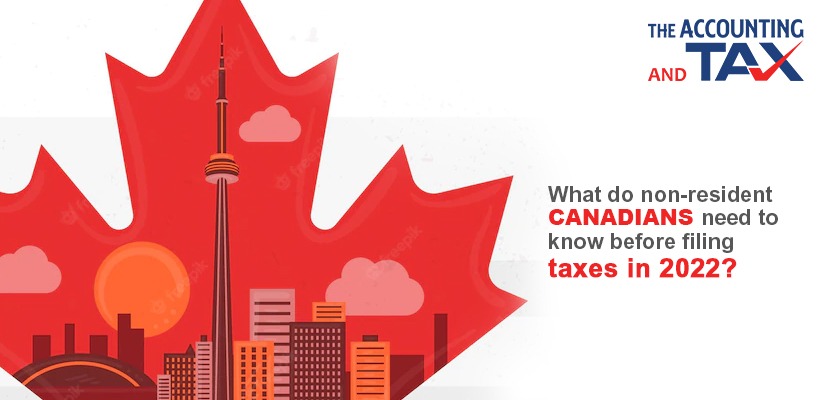
What Do Non-Resident Canadians Need to Know Before Filing Taxes in 2022?
Non-Resident Canadians are deemed residents of Canada as of 2021. As per the definition laid down by the CRA (Canada Revenue Agency), non-residential Canadians are persons who reside in Canada for less than 183 days. For the 2022 tax return, the province or territory (based on which non-resident Canadian tax is calculated) is decided on the basis of your residential address as of 31st December 2021. For instance, if you have lived in British Columbia till the 5th of January 2022 and then moved to Ontario, your tax will be calculated on the basis of the British Columbian tax guideline.
Since you resided in British Columbia on 31st December 2021, your stay in Ontario would not be counted during tax calculation.
There are multiple line numbers for filing the annual tax. This could well be a time consuming and hectic task that is best left to the Personal Tax consultancy Service in Toronto. If you are a non-resident Canadian who hasn’t filed the annual tax yet, it is high time to get in touch with the international tax consultancy service in Toronto to have your annual tax filing done without a hassle.
Who Are Non-Resident Canadians?
There is a misconception between “non-resident Canadians” and “deemed residents of Canada”. From the prism of taxing, if a person stays in Canada for a few days and then leaves the country cutting major residential ties, the person is defined as a non-resident Canadian. However, if you stay in Canada for more than 183 days and have received payments (in form of remuneration/ acknowledgement/ recognition) from Canadian institutes, then you are automatically liable to pay taxes as the deemed residents of Canada.
It is necessary to take note that non-residential Canadians must disclose their Canadian source of income as well as the international source(s) (if any).
Calculation of Non-Resident Canadian Taxes
As per the norms set by the CRA, non-resident Canadians must pay the current federal taxes along with 48% of the federal tax as the surtax. However, if your Canadian source of income is a permanent Canadian establishment, you have to pay the territorial tax or the provincial tax instead of the surtax. Things you should remember while filing tax as a non-resident Canadian are:
- Annual employment income in Canada
- Any other sources of income including scholarships, fellowships, research grants, etc.
- Capital gains incurred from merchandising Canadian property.
You don’t need to mention other sources of income in Form T1 but you have to mention the same in the Schedule A – Statement of World Income. As a non-resident Canadian, you must pay your taxes via cheques or money order (since NETFILE is unavailable for this category). You must take a print of your tax return and send it to the CRA. To know more about the process, get in touch with the Expats Tax Consultants in Toronto.
Follow us on:
